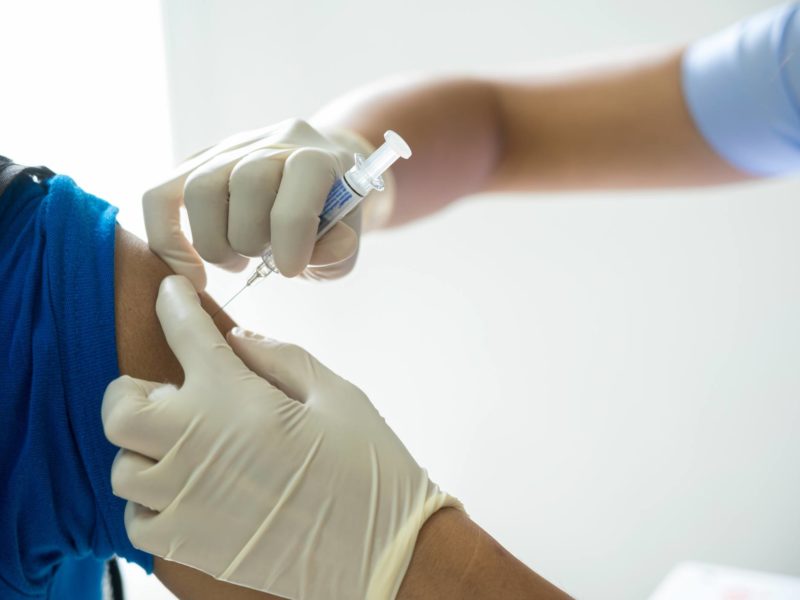Cushing’s Disease Can Be A Real Nightmare

If Rover seems anxious and wakes up panting at night, it may be more than just a bad dream.
He may be suffering with Cushing’s disease, and although it can cause significant health problems, it can be managed with proper veterinary care.
“Cushing’s disease (also known as hyperadrenocorticism) primarily occurs in small breed dogs that are middle aged and older,” says Dr. Deb Zoran, a veterinarian at the College of Veterinary Medicine & Biomedical Sciences at Texas A&M University.
“In 90 to 95 percent of cases, it is caused by a tiny tumor, called a microadenoma, that forms in the pituitary gland in the brain. The tumor secretes increased hormones that signal the adrenal glands to produce excessive amounts of a hormone called cortisol.”
In addition to panting and anxiety, symptoms may include pacing, increased thirst and urination, increased appetite, a pot-bellied appearance due to an enlarged liver, muscle weakness, hair loss, pigmentation of the skin and the appearance of thinning skin, particularly on the belly.
Symptoms may develop over weeks or months before becoming severe enough to catch an owner’s attention, Zoran says.
“Cortisol affects a variety of processes in the body, including metabolism and the ability to maintain body weight and muscle mass,” Zoran adds.
“It also helps regulate the body’s ‘fight or flight’ response. Excess cortisol can actually counter the effects of insulin, eventually exhausting the cells in the pancreas, which may result in the development of diabetes mellitus.”
While the tumor itself is usually benign, too much cortisol in the body is dangerous, she notes. Complications resulting from Cushing’s disease include high blood pressure, formation of blood clots, bladder stones and an increased risk of infections.
“In humans, the tumor can often be surgically removed or treated with radiation therapy, but the anatomy of their skull makes these procedures nearly impossible for dogs with Cushing’s disease,” Zoran notes.
Instead, veterinarians use lysodren, a drug that slows the production of cortisol by destroying the outer layer of the adrenal glands.
At the start of treatment, patients are given a higher dose of the drug, called an induction dose, to lower the production of cortisol. After about a week, the patients’ cortisol levels are re-checked.
“When the patient’s hormone levels have stabilized, your veterinarian will prescribe a maintenance dose of the drug, administered one to two times weekly, that will suppress cortisol production but not completely destroy the adrenal glands,” Zoran adds.
“As the patient ages, it is often necessary to increase the dosage as the adrenals respond less to the medication. Cushing’s disease patients require frequent veterinary checkups to ensure ongoing, proper treatment, and to reduce potential complications from the treatment.”
The symptoms associated with Cushing’s disease are common to a variety of other conditions, including diabetes mellitus, kidney failure, urinary tract disorders and liver disease. To be sure your pet’s condition is diagnosed accurately and treated appropriately, a thorough veterinary exam is recommended as soon as the symptoms become apparent, Zoran says.
Many animals with Cushing’s disease receiving proper veterinary attention can enjoy an active and healthy quality of life. However, not all patients with Cushing’s disease respond as expected and may have persistent clinical problems, she explains.
“As is often true for many diseases, the ongoing success of a pet’s treatment will depend upon the owner’s commitment to the animal’s veterinary care,” Zoran says. “Providing consistent and reliable care just might lengthen your dog’s life and make its sleep at night a little more restful.”
Media contact: Pet Talk.





